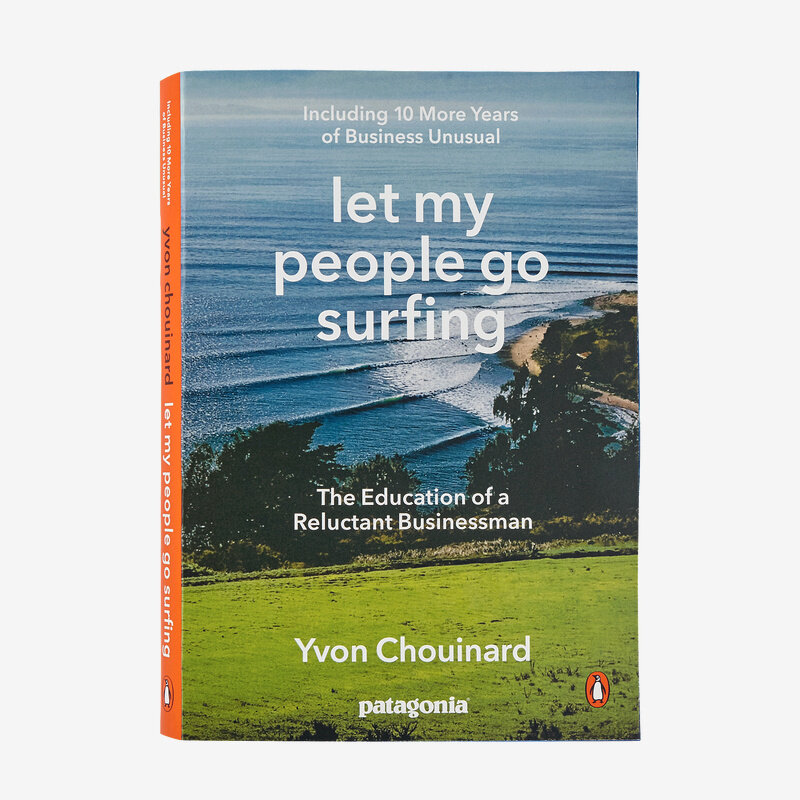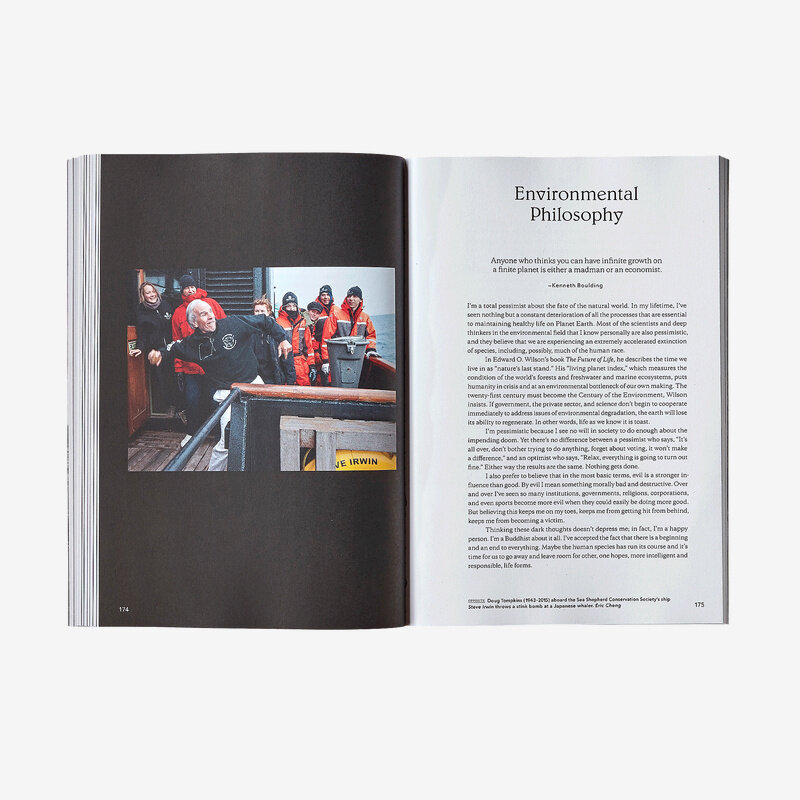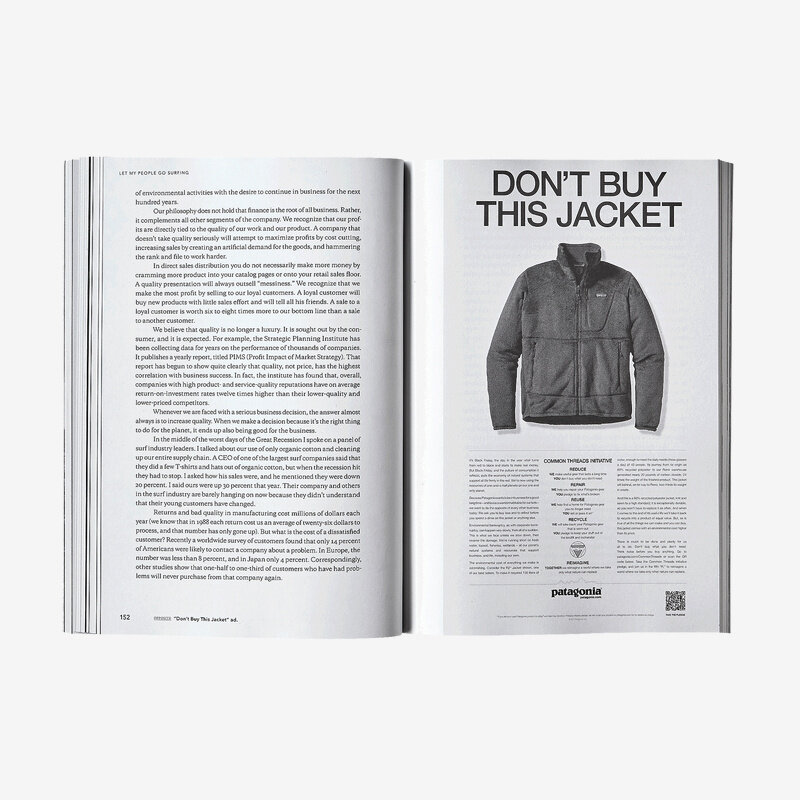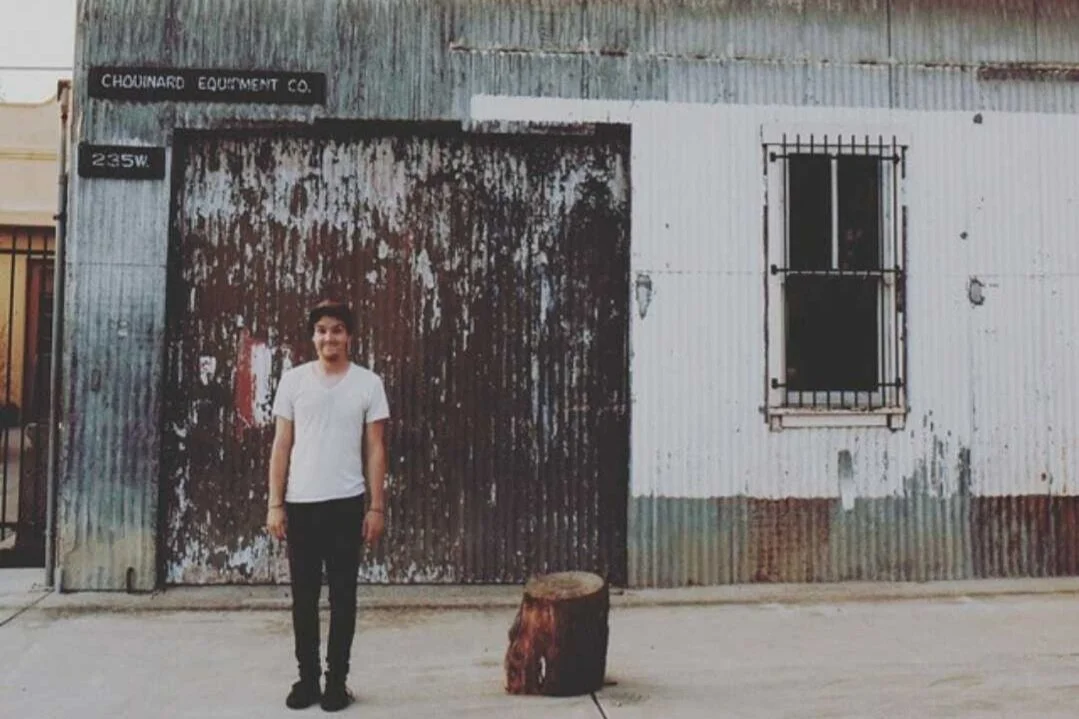Title: “Let My People Go Surfing”
Author: Yvon Chouinard
Reflection: If I am being totally honest, I have picked up this book a number of times over the past three years. This was the first time I worked through it cover-to-cover. These strange times and the uncertainty of life may have played a role in this but no matter the cause, I am eternally grateful for the inspiration and candor that Yvon Chouinard, founder of Patagonia, provides in his book “Let My People Go Surfing”. This book is equal parts; business management (a typically sleep-inducing topic), personal memoir, and anl urgent call for environmental action. For those in business or contemplating starting one, I cannot recommend this text enough. It traces the story of the founding of Patagonia and their evolution over time to be not just a company for the sake of itself, but to be a company whose every decision and product are guided by four simple yet exceedingly bold core values and mission statement:
We’re in business to save our home planet.
Build the best product: Our criteria for the best product rests on function, repairability, and, foremost, durability. Among the most direct ways we can limit ecological impacts is with goods that last for generations or can be recycled so the materials in them remain in use. Making the best product matters for saving the planet.
Cause no unnecessary harm: We know that our business activity—from lighting stores to dyeing shirts—is part of the problem. We work steadily to change our business practices and share what we’ve learned. But we recognize that this is not enough. We seek not only to do less harm, but more good.
Use business to protect nature: The challenges we face as a society require leadership. Once we identify a problem, we act. We embrace risk and act to protect and restore the stability, integrity and beauty of the web of life.
Not bound by convention: Our success—and much of the fun—lies in developing new ways to do things.
In reading this and in learning about the various philosophies that underpin all areas of business;design, production, distribution, marketing, finance, HR, management, and environment, it is clear that there is always more that can be done in striving toward your goals. There is a lot of press and lip service given to the rise of “social enterprises” - we have been called one and even at times self-identify as one. This is an imperfect moniker but is an attempt to say “we are not like other companies/ businesses, we operate from a place of belief, of values, and with purpose.”
Rust Belt Riders has been around for almost six years now, we have a clear mission statement to “Feed People, Not Landfills” and also have core values that guide us; Systems Thinking, Learning, Integrity, Empathy & Joy, Equity, and Regeneration. While these uncertain times have many of us reflecting on the things that are truly important, our work is no different. I have been thinking a great deal about how we can do more, about how we can dig deeper. How can our work continue to grow bonds, food, and a future that helps to heal people and the earth? There is no question that the coming weeks and months will be among the most trying in our company’s history but how we use these weeks and months to plan for the years and decades to come will hopefully put us on a path to join Patagonia and others in helping to “save the home planet”. I hope you will join us on this journey.
Daniel Brown, Co-Founder of Rust Belt Riders, outside of Yyon Chouinard’s tin shed, where Patagonia was born. (2015)

















